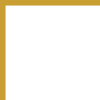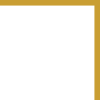



Half a kilometer down an alleyway, every morning on my way to work, I pass a minor yet substantial heap of trash. The neatness and regularity of the heap in aggregate make the unfettered plastic covers and browning banana peels, paper scraps and unidentifiable masses that poke out from between the black plastic bags and plastic blue barrels impossible to miss. More concerningly, the trash heap has no discernable source(s). The houses and flat blocks that line the two sides of the street do not allow their trash to spill onto the ground. They hang their trash off their gates, or lean them against their concrete walls, green plastic or white cloth bags that buzz in the heat. The only shop in the near vicinity is a jewelry-lingerie-hair accessory store that could not possibly be responsible for the stench of rotting food that rises toward me every day, coating my tongue in rancid oil.
No restaurants, no homes, no shops. Who then piles their trash in the space between the jewelry-lingerie-hair accessory store parking lot and the concrete wall concealing the sizeable plot of land that adjoins it?
I walked down that alleyway every morning, every evening, monday-tuesday-wednesday-thursday-friday-saturday for four whole months, but I never worked out the answer.
One morning, I made the incredible mistake of walking on the right side of the road instead of on the left. The unremitting flow of traffic, my habitual lateness, and the severe talking-to I began giving myself once I realized my mistake filled my skull with concrete. I could not find it in me to cross the road and so, for the first time in four months, I approached the trash heap head-on. What had seemed a humble pile from the other side of the road, I now understood to be a creeping menace that threatened to choke the public roadway. As I grew closer, the buzz of the autos and scooters, the blaring horns of Ambassadors and barreling Jeeps, the ripping of a motorcycle’s engine, all rose to an unbearable pitch. A few steps before I was upon it, I stopped inhaling entirely, my mouth open, slack, to let out the carbon dioxide that would otherwise build to an untenable pressure. There was no room to skirt it, no way to avoid it. I had to step right alongside it.
Alas, my close movement awakened something that lay lurking within, some creature, large enough, chaotic enough, maddened enough to rattle the trash-weighted barrels and elicit shrieking rustles from the plastic bags in-between. I gagged as I bolted past the heap, stumbling in my desire to escape. For a few steps, I couldn’t bring myself to look behind me. The fear of seeing the mysterious creature was greater than the benefit of knowing if it had given me chase.
After a certain distance, when it was clear that the creature had not come running after me (for it would have caught me by now), I finally worked up the gall to glance over my right shoulder.
There was nothing to see. Even the size of the trash heap had returned to the manageable size I remembered from before.
Still, I kept checking to make sure that whatever had been buried in the heap hadn’t broken free, hadn’t come chasing after me, searching for me. When I reached the other end of the concrete wall that concealed the sizeable plot, I realized how silly it was to keep looking back for if it had decided to attack me, it would have done so the very moment I had disturbed it.
As I swung open the rusted gate to my office building, I saw that my hands trembled.
#
For the rest of the day, when I wasn’t responding to an email or locating files requested by the director, I stared at my wrists and thought of the morning’s close encounter. Sometime after lunch, as the lukewarm rice and sambar, thoran and nyaringa settled, and my eyes began to cross, I became aware that I was considering the incident with something other than horror and revulsion.
Under the ceiling fan, whose blades moved at deadly speeds, I untangled this emotion from the rest to study its shape and size, weight and opacity, but it was difficult to recognize. In fact, the longer I observed it, the less I understood it. When my gaze returned to the clock, I realized that much more time had passed than I had thought. There were documents to be printed, Excel files to be updated, phone calls to be made, so I tucked the unknown and unnamed emotion into the elastic band of my patiala pants and returned to my work. It worried at me though. I could feel it imprinting its irregular shape against the soft skin of my belly. At three, when Uma Chechi stepped through the door with her tray of steel tumblers, a yelp of relief nearly escaped. I pressed my lips into a smile instead as she placed a tumbler at the right corner of my desk, the smile remaining until she passed through to the next room. The second she was gone, I scooped out the jagged thing.
Resting the lip of the tumbler on the edge of my index finger and thumb, intermittently blowing the surface of the steaming chaya, then sipping, I held out this mystery at a distance, then brought it close. As I repeated this motion again and again, a slip of a remembrance, a shadow of recognition passed through from the dark recesses of my mind.
The blood drained from my head. My hands grew clammy. I wrenched open my desk’s bottom drawer, flung the wretched thing in, rammed the drawer shut. The thing did not shatter, but rattled, and in the sound, there was an echo of those plastic barrels. Like a rabid dog, I dug through my purse to find the thin metal ring that kept my office keys separate from my home keys and locked the drawer.
The metal groaned.
I shuddered.
#
It didn’t matter that I never walked on the right side of the road again, that I never again turned my head to wonder at the neatness and regularity of that heap, nor slowed to search for a possible source. Every morning now, my shoulders hunched, hands clenching the straps of my purse, my ears straining.
After a month of this, I noticed that the muscles in my neck and the ones that stretched between my shoulder blades had grown into knots. I began tucking a tennis ball under my neck at night, kneading it into the places where I ached, my mouth opening in an interminable and soundless moan. The twenty to thirty minutes it took for me to fall asleep now stretched to one, then two , then three hours. Some nights, I couldn’t even close my eyes, staring up at the faint bars of light that filtered in from the window and cut across the ceiling. In the very moment I would drift off towards unconsciousness, my grandmother would call out in her sleep and I would wake, worrying at the source of this deep, dark well.
In the mornings, as I sipped my chaya and chewed the starchy, steamed aithaparam, dim and blue as her cataracts were, my grandmother began to note the dark circles deepening under my eyes, a strange sheen that glinted off my forehead.
#
For a month and a half, I tried. For forty-five days, all I did was try. In the end, it didn’t matter.
When I notified the director of my intent to return to the United States at the end of the month, I made vague references to my mother’s health to excuse my abrupt departure. The director, tilted her head, pursed her lips. She too had seen how far my eyes had receded, the sharpening edges of my cheekbones, the way I winced when I stood up too quickly. But all she did was stand, clasp my hand between the two of hers, and promised the inclusion of my mother in her daily prayers. I thanked her and left. I could no longer tell if I felt hot or cold.
To my grandmother and the pixelated faces of my concerned parents, I explained there had been an issue at the office, making vague references to project funding and better opportunities awaiting me in the very place I had just left. They asked a few questions that I barely responded to, but as they had long given up on getting answers with any weight, they did not press.
As my time in Kerala drew to a close, I kept my eyes on the ground, but the hushed rustle of the trash bags filled the space between my ears every morning as I passed the dreaded mass, now grown into a piercing shrill. On my last day of work, I allowed myself the hope that it would also be the last time I heard that noise.
Against it all, I hoped.
I shifted in my seat, crooked my head against the airplane window. My eyes, as always, were drawn to the line of coconut trees that were in fact Thiruvananthapuram’s only horizon.
I watched them as they bent to the wind that came from the sea.